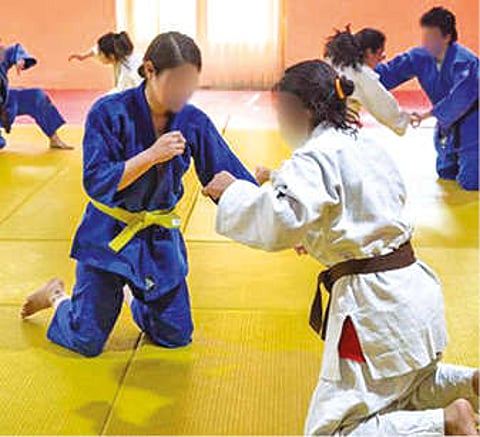

Chennai: I wish I didn’t exist,” Afghan athlete Amira (name changed) writes. “I didn’t do anything wrong. The only crime I have committed is to play sports.” Before the Taliban took power in Kabul in August 2021, Amira was one of the best judo fighters in the country. A few weeks ago, the Taliban raided her home for documents that would prove the young woman had been a member of the Afghan national team.
“Fortunately, she was able to escape. She hid in a local cemetery for the whole day, praying that the Taliban would not find her there,” Friba Rezayee tells DW. “Had they found these documents in her house, she would have been tried in a Sharia court. That would have meant she would have either received 100 lashes or even been publicly executed.” Rezayee was once a successful judoka herself in Afghanistan. She and track and field sprinter Robina Muqim Yaar became the first women ever to compete for Afghanistan in the Olympics in Athens in 2004. “That was a sports revolution,” Rezayee recalls. In 2011, she fled Afghanistan for Canada. There, the 36-year-old founded the aid organisation Women Leaders of Tomorrow (WLT), which provides higher education to female refugees from Afghanistan.
With its GOAL (Girls of Afghanistan Lead) sports program, the organisation also supports Afghan women in martial arts. Rezayee keeps in touch with around 130 Afghan female athletes who were not able to escape the country after the Taliban took power. These women continue to hide in their homes, “waiting, in a sense, for the Taliban to knock on the door and arrest them,” Rezayee says.
“The Taliban have sent them threatening letters. They’ve been intimidate and they can’t go outside.”
Judoka Amira describes the athletes’ dramatic situation this way, “We don’t need a prison for women in Afghanistan. Our houses have become prisons for us.” Afghanistan, says Mina (name changed), another judoka who remained in the country, “has become a fatherless country where violent children have the power to do whatever they want with women and girls.”
The Taliban have not yet officially banned women’s sports by law. During the first Taliban rule from 1996 to 2001, the International Olympic Committee (IOC) had excluded Afghanistan from the 2000 Games in Sydney, partly because the radical Islamists discriminated against female athletes. This attitude of the Taliban has not changed, Rezayee says. “According to their interpretation of Sharia law, women’s sports are a sin. They believe that sexual signals are sent to men because a woman’s body is visible during physical activity. Women are not even allowed to exercise in a gym.” There is a climate of intimidation and fear in Afghanistan, she explains. For example, a player on the Afghan national volleyball team was recently arrested and “the Taliban brutally beat her up. She had terrible bruises all over her body. The Taliban let her live because they wanted to show other female athletes what happens to them when they play sports.”
Rezayee and her staff at WLT are still trying to get Afghan female athletes out of the country and to safety. But even if they succeed, there is the question of where the women can then stay. The Canadian government, for example, focuses its refugee policy on former local Afghan forces of the Canadian army and their families, thus excluding female athletes.
Visit news.dtnext.in to explore our interactive epaper!
Download the DT Next app for more exciting features!
Click here for iOS
Click here for Android